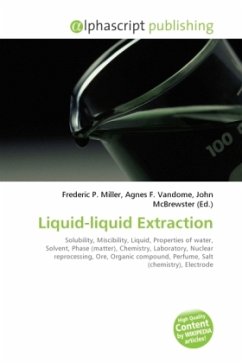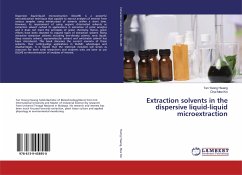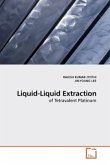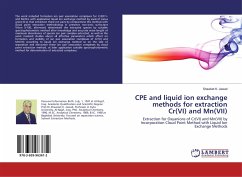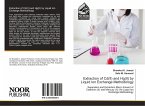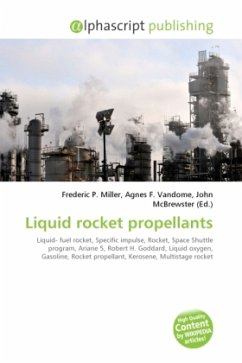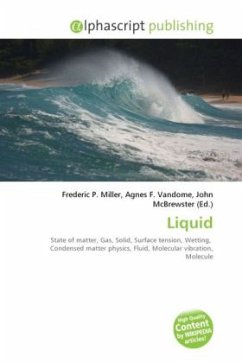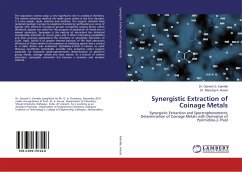Liquid-liquid extraction, also known as solvent extraction and partitioning, is a method to separate compounds based on their relative solubilities in two different immiscible liquids, usually water and an organic solvent. It is an extraction of a substance from one liquid phase into another liquid phase. Liquid-liquid extraction is a basic technique in chemical laboratories, where it is performed using a separatory funnel. This type of process is commonly performed after a chemical reaction as part of the work-up. In other words, this is the separation of a substance from a mixture by preferentially dissolving that substance in a suitable solvent. By this process a soluble compound is usually separated from an insoluble compound. Solvent extraction is used in nuclear reprocessing, ore processing, the production of fine organic compounds, the processing of perfumes and other industries. Liquid-liquid extraction is possible in non-aqueous systems: in a system consisting of a molten metal in contact with molten salt, metals can be extracted from one phase to the other.

